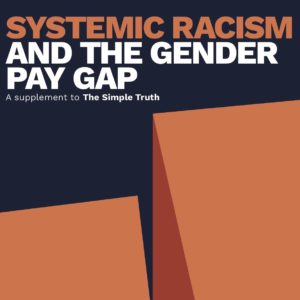 A new report from the American Association of University Women examines how the gender pay gap is even more pronounced for women of color. History has created systems that funnel women — especially women of color — into lower-paying occupations, undervalue the work that women do, and penalize women for having children, according to the report.
A new report from the American Association of University Women examines how the gender pay gap is even more pronounced for women of color. History has created systems that funnel women — especially women of color — into lower-paying occupations, undervalue the work that women do, and penalize women for having children, according to the report.
In 2019, men had a median income of $57,456, while women had a median income of $47,299 — a wage gap of 18 percent. Compared to White, non-Hispanic men, the pay gap for Black women was 38 percent. Persistent and ongoing pay inequality means women — particularly women of color — have less money and fewer resources, resulting in devastating consequences for families.
Based on recent progress, the AAUW report calculates that White women will reach pay parity with men by the year 2069. But for Black women, the trend suggests that they won’t reach wage parity until 2369, nearly 250 years from now.
The AAUW suggests the following measures should be taken in order to speed the progress toward pay equity:
- Make existing pay equity laws stronger.
- Raise the minimum wage and eliminate the tipped minimum wage.
- Improve paid leave and child care support.
- Institute robust protections against sexual, racial, and other forms of harassment.
- Ban the use of prior salary history as a basis for setting salary levels.
- Publicize wage ranges for all job postings.
- Offer paid family and medical leave to all employees.
- Implement equitable recruitment, hiring, and promotion practices.
The full report, Systemic Racism and the Gender Pay Gap, may be downloaded by clicking here.












